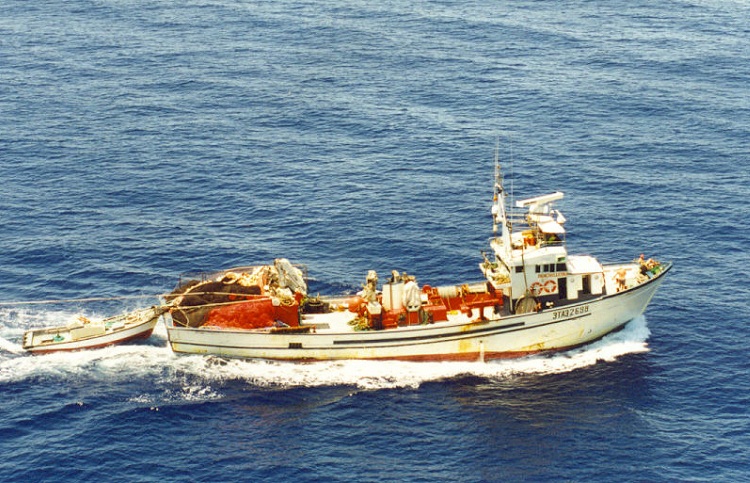The Diplomat
The Advocate General of the EU yesterday proposed to the Court of Justice of the EU (CJEU) to annul the Council decision concluding the sustainable fisheries partnership agreement with the Kingdom of Morocco, because she considers that it violates the principle of self-determination of the territory of Western Sahara by not treating it as “separate and distinct” from Morocco.
Advocate General Tamara Cápeta endorses the judgment of the General Court – at first instance of the CJEU – which in 2021 annulled the Council decision approving the conclusion of the EU-Morocco fisheries agreement and its protocol, but preserved its effects until the CJEU rules on the appeals that both the Council and the Commission have lodged against the General Court’s judgment.
In her Opinion, the Advocate General proposes that the Court of Justice dismiss these appeals and uphold the General Court’s judgment annulling the Council’s decision, according to Europa Press.
The application of this protocol expired on 17 July 2023, which meant the suspension of the activity, something that particularly affects Spain, since 92 of the 138 licences that fish in the area correspond to its flag, specifically the Andalusian, Galician and Canary Island fleets.
Despite supporting the judgment of the General Court, the Advocate General proposes,
owever, to base the annulment on a different reasoning. In this regard, she explains that the people of Western Sahara have no official or recognised representative to bring an action on their behalf, although she acknowledges that the Polisario Front is fighting for one of the three possible outcomes of the right to self-determination of the people of Western Sahara: the creation of an independent state.
Consequently, Cápeta believes that the Polisario Front must be considered to reflect the interests and wishes of “at least” a part of the people of Western Sahara and recalls that both the fisheries agreement and its implementing protocol do not comply with the requirement to treat the territory of Western Sahara as “separate and distinct” from the Kingdom of Morocco, in breach of the principle of self-determination, as interpreted by the Court of Justice in a previous judgment.
Moreover, according to the Advocate General, the failure to treat the two territories separately may also have an impact on the right of the people of Western Sahara to enjoy and benefit from their natural resources, including the fishery resources in the waters adjacent to the territory.
However, since some of these elements – although raised before the General Court – were not addressed, it is not for the Court of Justice to discuss the scope of the rights and duties relating to the enjoyment of the natural resources of the people of Western Sahara.
Support for the agricultural tariff agreement
The same Advocate General also points out that the General Court erred in annulling the decision approving, on behalf of the EU, a preferential tariff agreement with the Kingdom of Morocco concerning the territory of Western Sahara, and therefore proposes to set aside that judgment.
In this case, the Advocate General concludes that the preferential tariff agreement does treat the territory of Western Sahara as separate and distinct from the Kingdom of Morocco, but considers that the General Court misinterpreted the judgment of the CJEU because it did not require the Council to obtain the consent of the Sahrawi people directly because, in its present organisation, it cannot itself consent to the conclusion of an international agreement relating to its territory.
The conclusions note that under public international law, an administering power may, under certain circumstances, conclude an international agreement on behalf of a non-self-governing territory, such as Western Sahara.
In this case, the European Union considers the Kingdom of Morocco to be an administering power of the territory of Western Sahara, so that the Union can accept Morocco’s consent to such an agreement on behalf of the people of Western Sahara.
However, the Advocate General considers that there may be other obligations arising from the right to self-determination of the people of Western Sahara which may be relevant to the conclusion of an agreement with the Kingdom of Morocco on their behalf.
In addition, given that the EU and the international community consider Western Sahara as a distinct and separate territory from the Kingdom of Morocco, another opinion on Thursday indicates that food labelling requires that the territory of Western Sahara be indicated as the country of origin of melons and tomatoes grown and harvested in Western Sahara. Failure to do so, it adds, would be contrary to the position of the EU.
Failure to do so, it adds, would be contrary to the EU’s stated position on the territory of Western Sahara and would violate the requirement for “correct, neutral and objective” indications on EU food labels. Labelling these products as originating in the Kingdom of Morocco instead of Western Sahara is therefore in breach of EU law.







